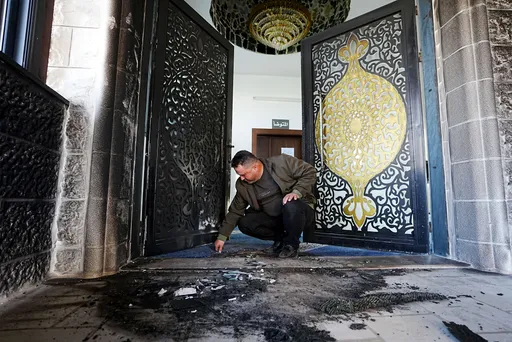Researchers at Australia’s RMIT University have proposed a novel solution to manage the growing pollution of discarded face masks that litter the streets and seas and generate inordinate landfill waste.
The study by M. Saberian, J. Li, S. Kilmartin-Lynch, et al., Repurposing of Covid-19 single-use face masks for pavements base/subbase, Science of the Total Environment (2021), proposes using shredded face masks (SFM) mixed with recycled concrete aggregate (RCA) to pave roads.
The researchers anticipate that “currently, the global use of face masks is more than 129 billion every month due to the Covid-19 pandemic. Using the model of the daily global face mask proposed by Nzediegwu and Chang (2020), the authors estimate that 6.88 billion (approximately 206,470 tonnes) face masks are generated around the world each day, which are ultimately sent to landfills or incinerated.”
According to a news story by the United Nations, “The promotion of mask wearing as a way to slow the spread of Covid-19 has led to an extraordinary increase in the production of disposable masks: the UN trade body, UNCTAD, estimates that global sales will total some $166 billion this year, up from around $800 million in 2019.” That is more than 200 times the previous year, a steep incline if there was any.
“Plastic pollution was already one of the greatest threats to our planet before the coronavirus outbreak,” says Pamela Coke-Hamilton, UNCTAD’s director of international trade. “The sudden boom in the daily use of certain products to keep people safe and stop the disease is making things much worse.”
The researchers propose that face masks, an indispensable part of our lives nowadays because of the coronavirus pandemic, can be used to create an alternative to asphalt to pave roads. The authors of the study write that “single-use masks are made of non-biodegradable plastics, which means that they take hundreds of years to break down in the environment (Dhawan et al., 2019). Therefore, multidisciplinary collaboration is urgently required to fight against the Covid-19 pandemic and reduce the environmental risks associated with the disposal of used PPE [personal protective equipment].”
The researchers tested their proposal using clean, unused face masks in a lab environment.
The authors of the study say: “It should be pointed out that the metal strips and ear loops were removed from the masks. In terms of the physical properties of the masks, top and bottom layers of the face masks were made of non-woven fabric (spunbond) while the middle layer of the masks was meltdown polypropylene.”
Fast Company, which reported the study, writes that according to Jie Li, a professor who led the study at RMIT University, “results from their experiment suggest that RCA [recycled concrete aggregate] mixed with face masks could be used for two of the four layers generally used to make roads. They estimate that paving a two-lane road that’s 0.62 miles (or one kilometer) long will require about 3 million face masks, rerouting 93 tons of waste from landfills.”
The RMIT University experiments’ results “show that RCA mixed with three different percentages (i.e., 1 percent, 2 percent and 3 percent) of SFM satisfied the stiffness and strength requirements for pavements base/subbase.”
Fast Company notes that “Not only could the solution mitigate the environmental impacts of Covid-19, but it could also actually make the road work better.”
In a bright note, the authors write “the introduction of the shredded face mask not only increased the strength and stiffness but also improved the ductility and flexibility of RCA/SFM blends …. However, beyond 2 percent, increasing the amount of SFM led to a decrease in strength and stiffness.”
Quoted in Fast Company, Li says “Using face masks with recycled concrete aggregate as an alternative material would not only reduce pandemic-generated waste and the need for virgin materials but also reduce construction costs by about 30 percent.”
The cost analysis by Li and his team, Fast Company reports, has found that “mining virgin material from a quarry runs about $50 per ton, whereas RCA is about $26. And though the collection, disinfection, and transportation of used masks could hike up costs, you need to compare those extra costs to the cost of disposing of them in a landfill, which Li says can range between about $32 and $78 per ton in urban areas in Australia.”























